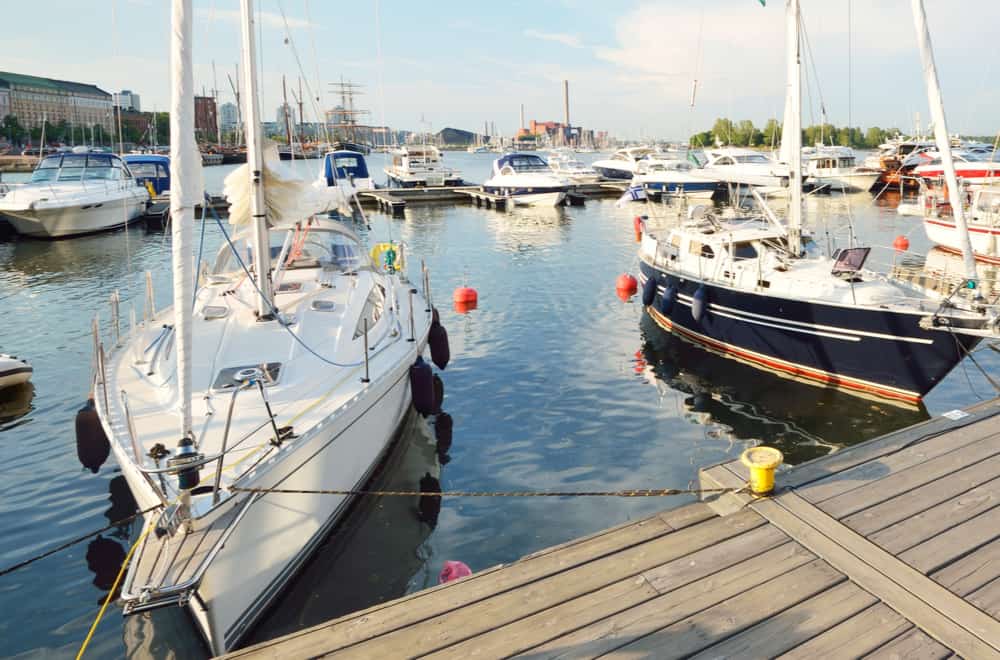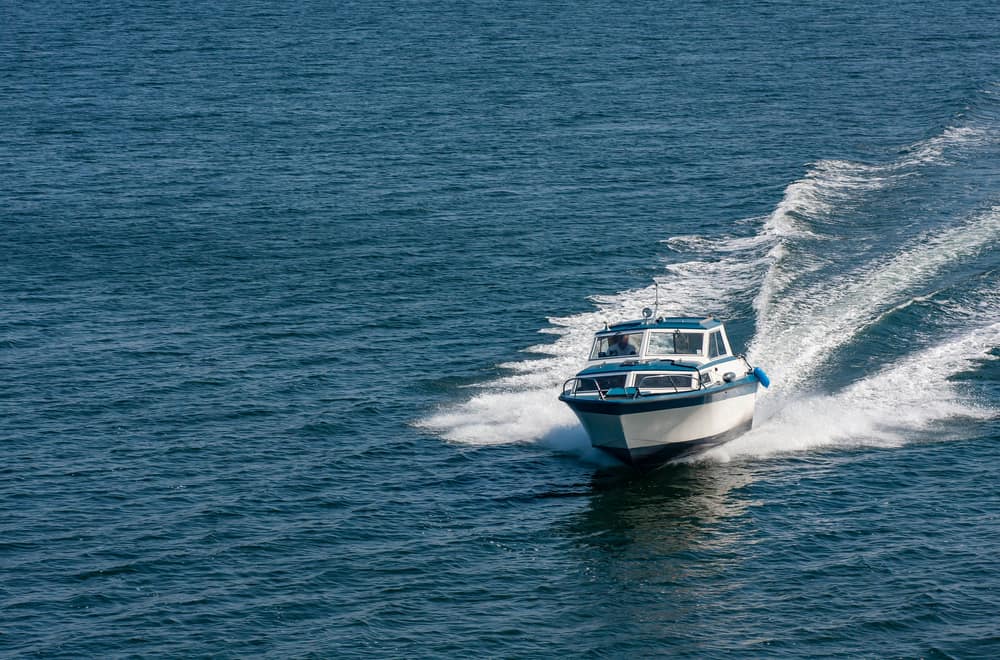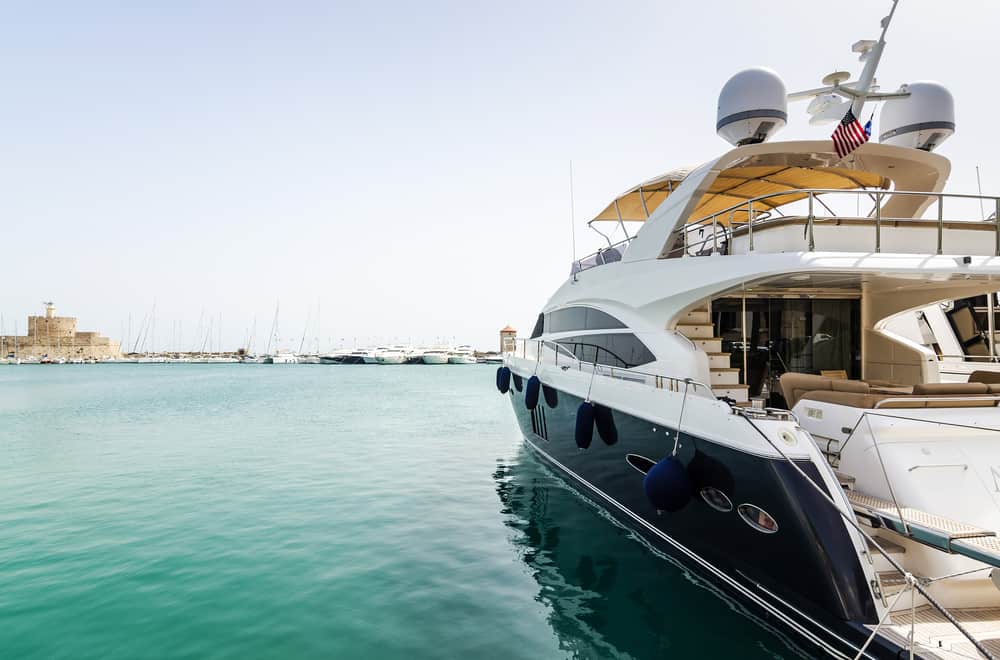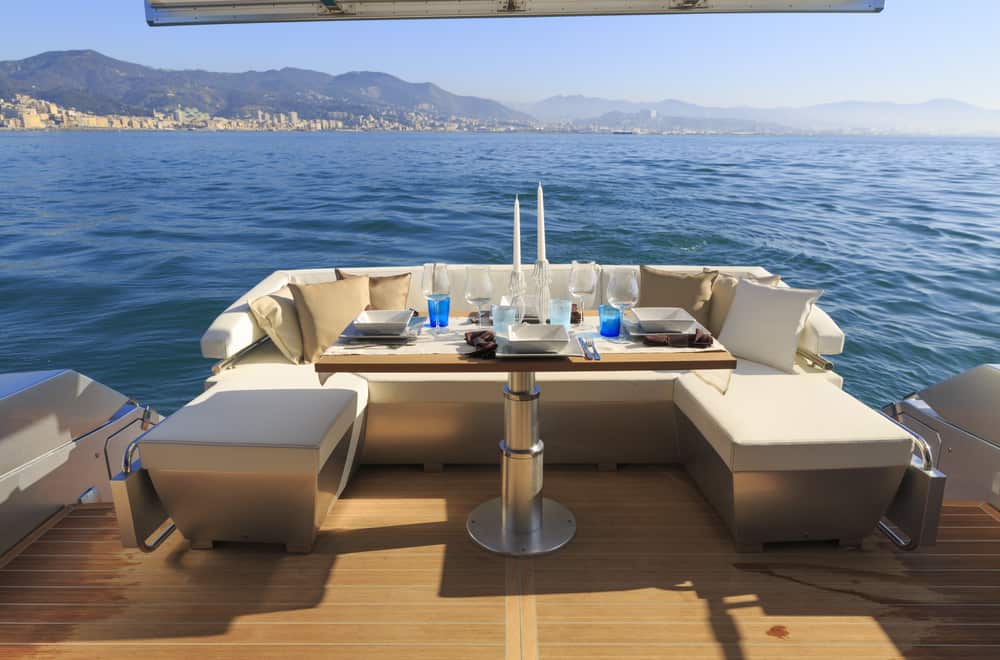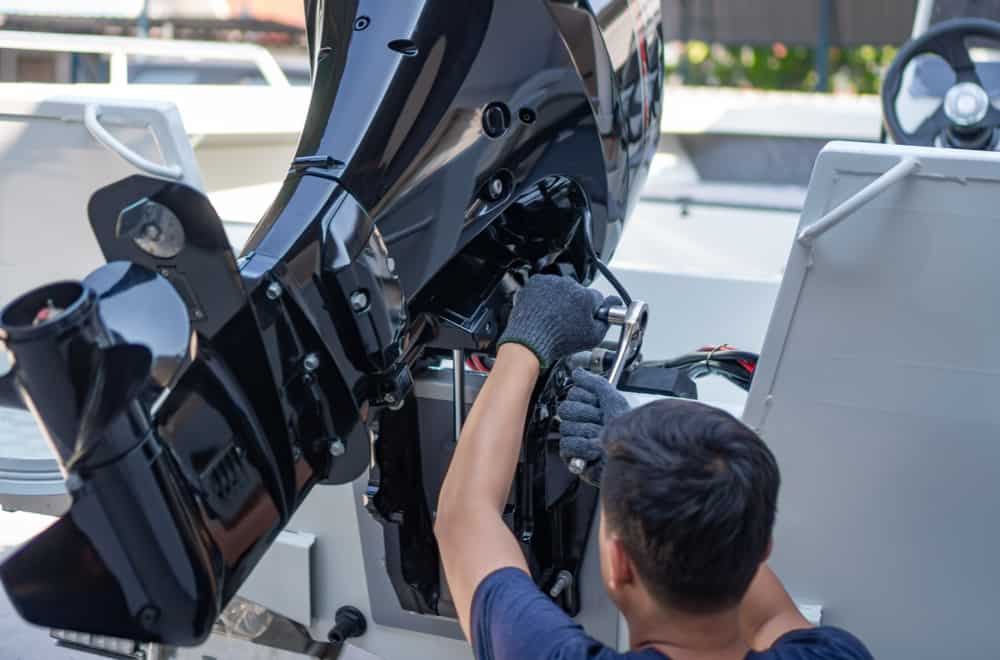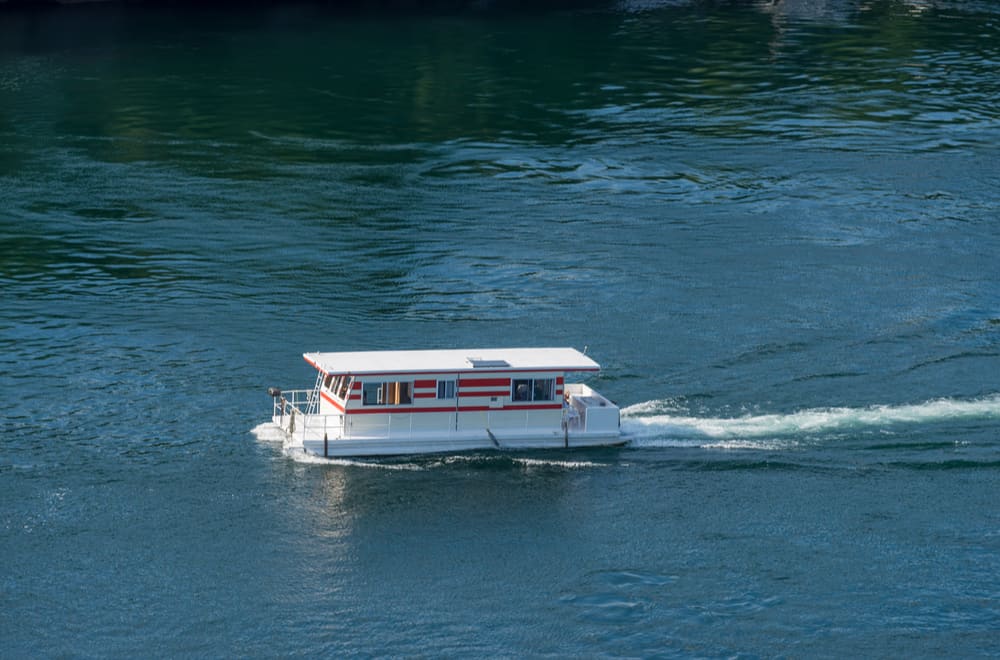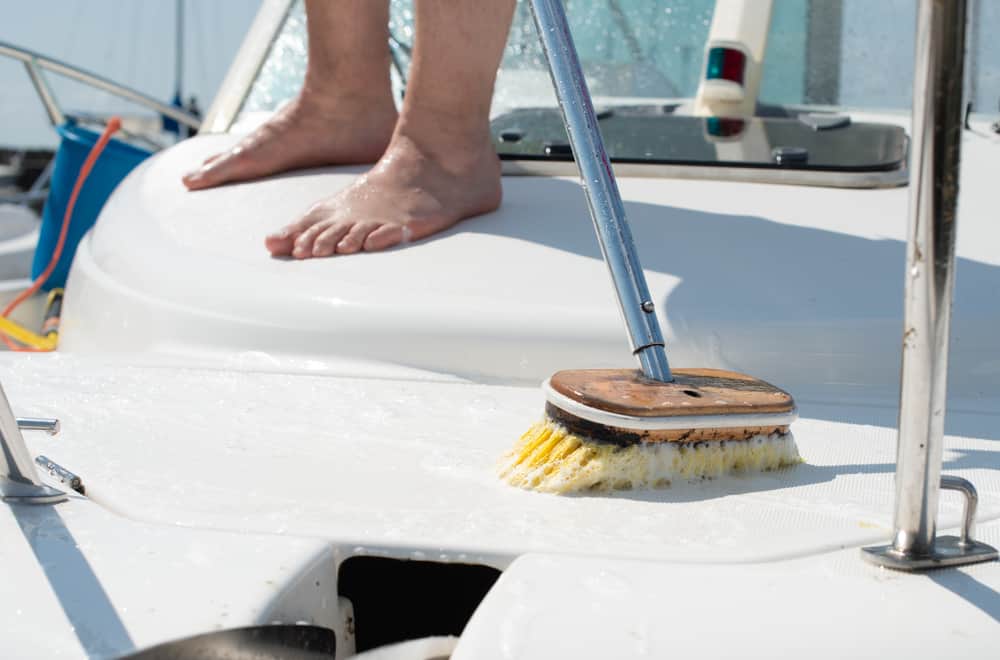Have you ever dreamed of a home overlooking a peaceful stretch of water? Or perhaps you’re considering new ways to find a place of your own as property prices rise? Either way, living on a boat could be a solution.
But while it has some amazing benefits, life on the water can also present challenges. So what might you need to do to get the best out of the experience?
That’s what we’re here to find out! We’re going to share 10 tips to live on a boat in comfort. If you’re thinking of making the change, read on to discover how to make it work for you.
How to live on a boat?
1. Know where you’ll be living
First things first – decide what living on a boat means to you. Do you dream of sailing around the world, seeing new sights from month to month? Or are you planning to use your boat as a more sedentary base, a home that just happens to be on the water?
Either option is possible, but they mean taking different practical considerations into account.
If you’re planning to travel long distances, you’ll need a boat that’s capable of doing that. You’ll need to have the right paperwork in place for entering other countries’ waters. And your sailing skills will need to be up to scratch. (We’ll talk more about that later.)
If your aim is to stay largely in the same place, you need to know where that is. Is a mooring available? Depending on your location, they can have very long waiting lists. And what are the rules about staying there overnight?
Some marinas will only allow limited overnight stays – perhaps two days in the week. That will mean you’ll need to either have alternative accommodation for other days, or somewhere else to anchor your boat.
It will also be important to get a feel for the marina itself. Find out what amenities are available.
But also check it out in person, and try to meet the people who’d be your neighbors. The atmosphere at different marinas can vary just as much as in bricks and mortar communities. Some feel like privileged enclaves, while others are more like edgy trailer parks.
2. Understand your costs and budget
It can be tempting to think of living on a boat as a lower cost option – and in some cases, it can be. But there are a host of expenses that come with life on the water that you don’t get in standard housing.
To start with, there’s the cost of a mooring, also known as slip fees. Depending on where you’re looking to stay, that can be extremely expensive.
If you’re buying a boat, there’s a financial trade-off between condition and the amount you’ll need to spend on repairs and upgrades. In other words, a boat that’s not expensive to buy may need a lot of work, time and money spent on it just to become liveable.
You may have a mortgage to pay on your boat. You’ll have to pay for annual insurance – usually between 1 and 2 percent of the boat’s cost. And you’ll need to pay for regular maintenance. Even if you’re doing that yourself, there’ll still be expenses associated with tools and parts.
Fuel and waste management will have costs too – the former will be particularly high if you’re planing to sail long distances.
And you’ll have all the usual expenses in relation to food and water. Bear in mind too, that limited storage space onboard will affect those costs at the margins. Those 2-for-1 deals are no good if you don’t have room for two items!
Preparing a budget is one of the most important aspects of preparing for life on a boat. Take your time over it, and make sure you’ve included everything you can think of. It’s a good idea to add a minimum of 10 percent to your anticipated costs to cover unexpected expenses.
3. Consider the needs of anyone you live with
If you’ll be living alone, you can skip this section. But if you’ll be sharing your boat with anyone else – human or animal – it’s important to think about their needs too.
It is possible to live on a boat with pets, but it does take care. Your pet will need to acclimate to its new surroundings. Check whether there are tight spaces they could get stuck in, and block access to them. And ensure they can get back to safety if the worst happens and they fall into the water.
Make sure any stairs and decks are safe for them. And think about how they’ll get regular exercise and private space. Be prepared to take the necessary time to help them get used to their new surroundings.
If you’ll be sharing your boat with other people, consider setting ground rules for how you’ll use the space. How will you divvy up storage? What about access to other facilities? And how will each of you be able to get privacy when you need it?
Discuss these kinds of issues in advance, and you’ll be much better placed to handle living at close quarters.
4. Think about safety and security
If you’re going to be mooring somewhere permanently – or at least regularly – check out the security arrangements. Is there good lighting and a secure environment? Who else will have access to the slip way?
If you’re not going to be there all the time, who can you contact on-site in case of emergency? Boats can and do develop faults. Think about who could check on your vessel, and how they’d get in touch with you if there’s a problem.
If you’re going to be driving to the marina, is there somewhere secure to leave your vehicle? Is there good lighting between the carpark and slip way?
It’s also important to have up-to-date safety equipment on board your boat. That means fire extinguishers, CO2, smoke alarms and a propane sniffer. Make sure you check them regularly as part of your maintenance regime.
If you’re going to be traveling long distances, proper planning is essential. And make sure you have a really good quality first aid kit at the ready.
5. Be realistic about space
Good boat design often offers plenty of ingenious storage. But even so, your space will be strictly limited. So be realistic about how little you’ll be able to live with – and what you can’t live without.
If saying goodbye to your 500-volume library of books is a no-no, living on a boat probably isn’t for you. Declutter before you make your move.
We’re not just talking here about clothes, furniture and personal belongings – though of course they’re important. Remember that this will extend to every item in your home. That includes things like cooking utensils and groceries, cleaning products and tools.
It can be helpful to consider how what you might need could change through the seasons. Perhaps there’s somewhere else you could store your winter clothes and heater in the summer months.(5)
6. Consider the climate
Living on a boat means you’re more exposed to the elements than in bricks and mortar housing. So think about the practical impact of that in the location where you’ll be living.
Do you plan to move from place to place, so you’re always somewhere warm? If so, you’ll need to budget for fuel, and have a plan about where you’ll stay. If you’ll be traveling to other jurisdictions, you’ll need the right visas and other paperwork.
If you’ll be overwintering somewhere cold, consider how you’ll heat your boat. If you’re going to use a propane heater, make sure there’s space to position it safely. And make sure you have the right safety equipment – like a CO2 alarm and propane sniffer – to detect any problems quickly.
Warm weather can present its own challenges too. Berths can get hot and stuffy, so ensure you have adequate ventilation.
7. Upgrade your DIY skills
Boats require regular maintenance. That means big jobs like services, but also a myriad of small things that need to be fixed on an ongoing basis. Someone once said that sail-boating was another word for fixing things in exotic places!
It is, of course, possible to get someone else to do your maintenance. Indeed, some big jobs may be better handled by a professional.
But if you have to turn to someone else every time you need to fix something, it will be a costly business. And it won’t always be practical if you plan to travel around.
If you’re not already competent in basic plumbing, mechanics and electricals, consider upgrading your skills. Taking a few courses before you move onto a boat will make your life a whole lot easier. And those courses will pay for themselves before you know it.
8. Consider your nautical skills
If you’re planning on sailing the world, you need to have the nautical skills to do it safely. And even if you’re planning a more sedentary lifestyle, you’ll almost certainly want – and need – to move your boat from time to time.
So alongside brushing up on your DIY, make sure you have the right level of boating or sailing competence.
Sailing can be a very strenuous activity, and it isn’t for everyone. If you haven’t sailed before, take lessons before deciding whether life on a sailboat is for you.
A houseboat is a very different way of traveling the water, but it still requires competent piloting. Take the time to get to know your boat, and ensure you understand the rules of the waterways.
9. Plan ahead for your essentials
When you’re on a boat, there aren’t limitless supplies of anything. That means planning ahead is an absolute must, and lists are your new best friends.
That goes double if you’ll be sailing from place to place. Finding yourself in the middle of the ocean without coffee is terrible. Finding yourself there without fuel is a whole lot worse.
Remember that you won’t have endless space for storage either. That means prioritization is an important skill. Make grocery lists with that in mind. And always make sure that you have extra water on hand.
If you’re traveling the world, remember that not everywhere will have access to ready-stocked supermarkets. Plan your itinerary carefully, and stock up when you can.
You’ll also need to be able to empty your waste tank regularly, and there are rules about where and how you can do this. So if you’re going to be moving around, consider that in your planning. It’s not glamorous, but it is important.
10. Be prepared for everyday maintenance
We’re used to thinking of boats as relaxing places – and they can be. But if you’re living on one, you’ll also need to be prepared for a shedload of everyday maintenance.
That includes regular checks on your fuel, food supplies and water. It means maintaining and servicing your boat and equipment.
And it also means lots of cleaning.
The damp environment means that keeping mold and mildew at bay is an ongoing endeavor. Steam and condensation will be generated when you cook. And even your presence as a living, breathing human being generates moisture.
Be prepared to empty out your cupboards every few weeks and give them a thorough cleaning. Antibacterial and antifungal cleaners will get rid of any mold and mildew that’s starting to form.
Another important thing to bear in mind is that there’s no sewerage system with a boat. Your waste holding tank will need to be emptied at a pump-out station on a regular basis.
Depending on your toilet, you may need to eschew toilet paper. It’s very easy for it to cause blockages. A portable bidet can be a better alternative.
Ready for Life on a Boat?
That brings us to the end of our look at 10 tips to live on a boat. We hope it’s helped you plan for a new life on the water!
It’s true there’s lots to think about. Planning is important, and that starts well before you buy a boat. But if you’re well-organized and prepared for the maintenance, living on a boat provides an experience like no other.
Good luck with your adventure!

